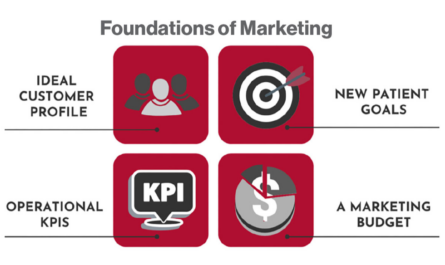By Teresa Duncan, MS, FADIA, FAADOM
Team leaders in dental offices are often created by accident or out of necessity. It’s rare (but great) to find a manager whose position has been created and who has been recruited. It’s usually an individual who has been promoted from an assistant or receptionist position and training is typically an afterthought.
Many new managers learn their skills on the job. When you place a person into a new position with which they’re not familiar they tend to bring habits from their old position along with them. As a result new managers tend to make mistakes that could have been avoided through mentoring and guidance.
MISTAKE NUMBER 1
NOT REEVALUATING YOUR FRIENDSHIP WITH EXISTING TEAM MEMBERS
A new manager has often worked side-by-side with other team members for years sharing common experiences and common complaints. However, when you are leading a team you have to understand that those old allegiances need to be put aside. Newer managers tend to still prioritize their friendships with their coworkers because they have loyalty to them. But when you take a position of leadership your allegiance now belongs primarily to the office and then to the employees. This can be hard especially when you are used to commiserating with other employees about work situations. The new job will require oversight of friends and this can be uncomfortable for a new manager.
Once you become too close with employees it becomes almost impossible to manage them. Many times office workers will see patterns of favoritism because they are used to you and Joan being constant lunch buddies. Are you in the habit of going to happy hour and taking long lunches with your coworkers? I hate to tell you this but generally this will not work in your new managerial position. This includes not giving in to office gossip – yes, even if you did this last week. New position, new expectations! Prepare your team by establishing new boundaries around your position. Let them know that you won’t be able to take the lunches with them on a regular basis because you are learning new skills. Experienced managers will tell you that this is one of the hardest lessons to learn. It’s in our nature to want to be liked but your priority is the success of the team and the practice.
MISTAKE NUMBER 2
CONTINUING TO PERFORM THE SAME JOB AND JUST ADDING MANAGERIAL TASKS INTO THE MIX
I’ll bet that before the new tasks were assigned this was a full time position. Add in running reports and strategic planning and we now have an overworked, unprepared manager. Delegation does not come easily to your typical office leader. Our first inclination is to always do the job ourselves because ‘it’s just easier and faster that way.’ Rather than retrain employees to perform routine jobs that we did without thinking, we continue to do the ‘easy’ tasks.
Managers are much more effective when they are performing high-level tasks such as report analysis, budget reviews and employee management. Entering insurance checks, scheduling appointments and answering the phone are easily delegable duties that will allow your new manager to focus on moving the practice forward. And what of the employees that are more than willing to take over tasks? If they’re not utilized they will begin to wonder why. Employees are at their best when they are motivated by empowerment and the idea of learning new skills. It’s human nature to want to expand our horizons. If you don’t offer new opportunities or empowerment to your employees you risk demotivating them.
MISTAKE NUMBER 3
THE RELUCTANCE TO ASK FOR HELP
While I understand that no one wants to show that they are lacking in an area I believe that the most growth can occur at this time. A valuable manager will recognize when he or she needs more training. After all, we can see this in others so then why shouldn’t we see it in ourselves? At the very least a manager needs to take introductory courses in human resources and small business financial reporting. Leadership and systems implementations are the next skills to learn. It’s hard to master leadership – it is always a work in progress. Most great business leaders will emphasize that they learn from their employees every day.
Asking for help is a great way to forge a strong relationship with your owner/dentist. Chances are that he or she did not take many business classes in dental school. Any classes or memberships can be shared between manager and dentist. Why not learn together? The doctor may also have no idea that you need training in areas such as insurance or accounts receivable management. Managers who have been with their employer for more than ten years will gladly tell you that they’ve been able to teach their dentists a few things about the business. What makes them valuable to the dentists is that the information was shared. The manager that doesn’t share information does not help their office. Learn with your doctor and brainstorm together – this is what makes a strong management team.
Taking on more responsibility is a wonderful opportunity. You now have the chance to take your practice to the next level – you’ve been given the keys! Will you read the roadmap and ask for help or will you forge ahead blindly? I hope that you reach out for support and learning. We are never finished with our education and no doubt your new position will offer situations and conversations that will be unexpected. You’re not alone – ask for help and manage your practice to future success.
Teresa Duncan is President of Odyssey Management, Inc. She is an international speaker that focuses on recapturing and maximizing revenue opportunities for dental offices. Insurance and accounts receivable systems are her specialty. She can be reached at [email protected].





